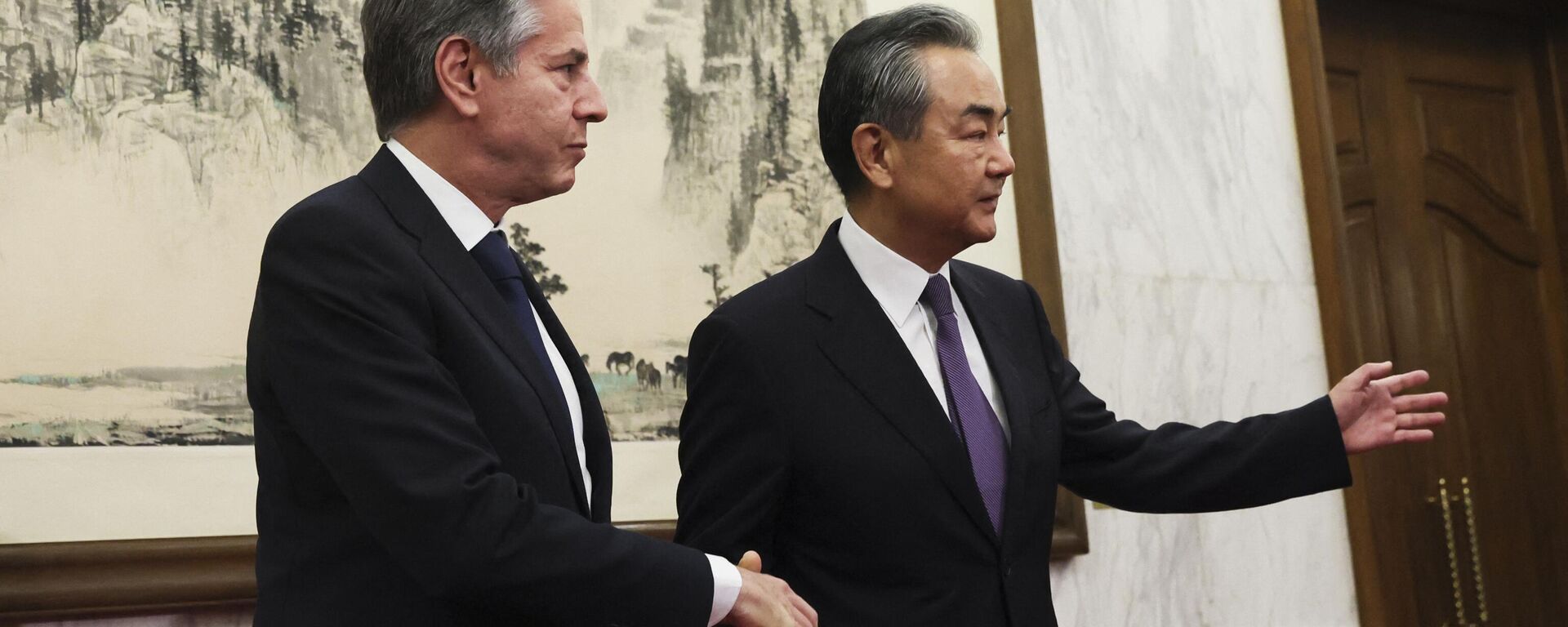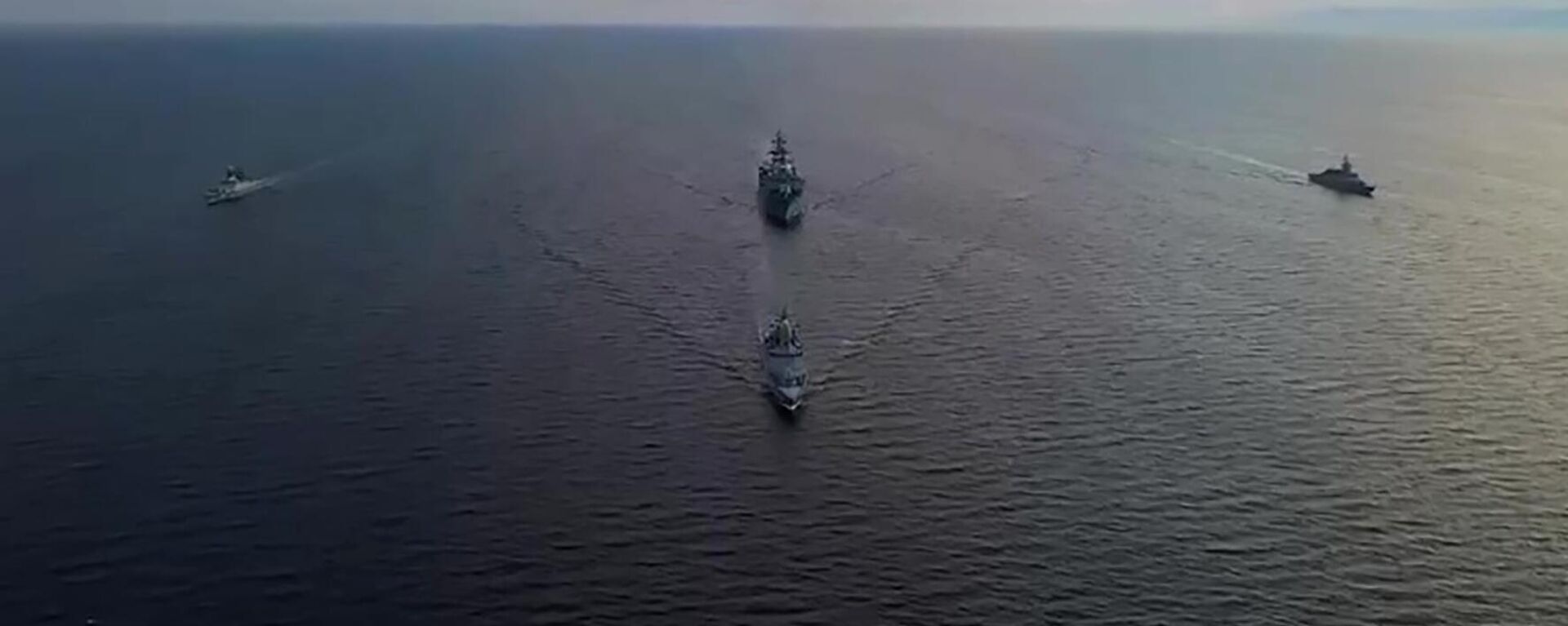https://sputnikglobe.com/20230728/biden-approves-345-million-in-us-defense-aid-to-taiwan-1112232551.html
Biden OKs $345 Million for Taiwan Defense as Chinese Embassy Urges US Not to Escalate Tensions
Biden OKs $345 Million for Taiwan Defense as Chinese Embassy Urges US Not to Escalate Tensions
Sputnik International
US President Joe Biden approved up to $345 million in defense aid to Taiwan, the president said in a memorandum to US Secretary of State Antony Blinken.
2023-07-28T22:24+0000
2023-07-28T22:24+0000
2023-07-29T01:13+0000
military
us
taiwan
us defense spending
military equipment
https://cdn1.img.sputnikglobe.com/img/07e7/05/13/1110454708_0:156:3000:1844_1920x0_80_0_0_87eb30c616f89d202b9076f49dbda9b7.jpg
"I hereby delegate to the Secretary of State the authority… to direct the drawdown of up to $345 million in defense articles and services of the Department of Defense, and military education and training, to provide assistance to Taiwan," the memorandum said on Friday. The Biden administration has repeatedly said it seeks to maintain the status quo across the Taiwan Strait and remains committed to prior agreements between the United States and China regarding Taiwan. However, the aid also comes amid a break in military-to-military contact between the United States and China. Tensions have been rising between the United States and the People's Republic of China in recent years, largely over Taiwan and territorial disputes in the South China Sea. The aid is in addition to the nearly $19 billion in military equipment and weapons sales that the US approved for Taiwan.Liu Pengyu, who serves as the spokesperson for China's embassy in Washington, told Sputnik shortly after the defense announcement was made that Beijing fully opposes US military ties and any military sales to Taiwan.Like much of the aid given to Ukraine, the $345 million package will come out of US stockpiles, enabling quick shipment.In May, after the United States and Taiwan agreed to boost trade ties, Chinese Foreign Ministry spokesperson Wang Wenbin implored the United States to respect its "one China" policy and agreements it made with China regarding the island.Both China and the United States have increased their military drills in the area over the past two years.
https://sputnikglobe.com/20230619/china-to-not-compromise-on-taiwan-issue-us-must-respect-chinas-sovereignty---reports-1111271140.html
https://sputnikglobe.com/20230715/military-drills-involving-china-russia-expected-in-near-future-1111887464.html
taiwan
Sputnik International
feedback@sputniknews.com
+74956456601
MIA „Rossiya Segodnya“
2023
Sputnik International
feedback@sputniknews.com
+74956456601
MIA „Rossiya Segodnya“
News
en_EN
Sputnik International
feedback@sputniknews.com
+74956456601
MIA „Rossiya Segodnya“
Sputnik International
feedback@sputniknews.com
+74956456601
MIA „Rossiya Segodnya“
us president joe biden, us defense spending, taiwan, white house memo,
us president joe biden, us defense spending, taiwan, white house memo,
Biden OKs $345 Million for Taiwan Defense as Chinese Embassy Urges US Not to Escalate Tensions
22:24 GMT 28.07.2023 (Updated: 01:13 GMT 29.07.2023) WASHINGTON (Sputnik) - US President Joe Biden approved up to $345 million in defense aid to Taiwan, the president said in a memorandum to US Secretary of State Antony Blinken.
"I hereby delegate to the Secretary of State the authority… to direct the drawdown of up to $345 million in defense articles and services of the Department of Defense, and military education and training, to provide assistance to Taiwan," the memorandum said on Friday.
The Biden administration has repeatedly said it seeks to maintain the status quo across the Taiwan Strait and remains committed to prior agreements between the United States and China regarding Taiwan.
However, the aid also comes amid a break in military-to-military contact between the United States and China. Tensions have been rising between the United States and the People's Republic of China in recent years, largely over Taiwan and territorial disputes in the South China Sea.
Taiwan has been governed independently from mainland China since 1949. Beijing regards the island as its province, while Taiwan maintains that it is an autonomous entity but stops short of declaring independence.
Beijing opposes any official foreign contacts with Taipei and regards Chinese sovereignty over the island as indisputable.
The aid is in addition to the nearly $19 billion in military equipment and weapons sales that the US approved for Taiwan.
Liu Pengyu, who serves as the spokesperson for China's embassy in Washington, told Sputnik shortly after the defense announcement was made that Beijing fully opposes US military ties and any military sales to Taiwan.
"This position is consistent and unequivocal," the spokesperson said of China's official stance on US ties to Taiwan and of the defense aid. "The US should abide by the 'one-China' principle and the three China-US joint communiqués, stop selling arms to Taiwan, stop creating new factors that could lead to tensions in the Taiwan Strait and stop posing risks to peace and stability in the Taiwan Strait."
The United States officially supports the "one China" policy, which acknowledges that Taiwan is part of mainland China. Ostensibly, the United States does not recognize the Taiwanese government, but does have economic ties, and US law requires the government to consider threats to the island a "grave concern."
Like much of the aid given to Ukraine, the $345 million package will come out of US stockpiles, enabling quick shipment.
In May, after the United States and Taiwan agreed to boost trade ties, Chinese Foreign Ministry spokesperson Wang Wenbin implored the United States to respect its "one China" policy and agreements it made with China regarding the island.
"The US needs to abide by the one-China principle and the three China-US joint communiqués with concrete actions, stop official interaction of any form with Taiwan," Wang said, adding the US should "stop sending any wrong message to separatist forces seeking 'Taiwan independence.'"
Both China and the United States have increased their military drills in the area over the past two years.




